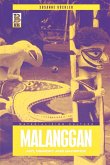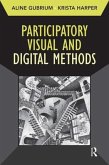Globalization is often described as the spread of western culture to other parts of the world. How accurate is the depiction of 'cultural flow'? In Counterworks, ten anthropologists examine the ways in which global processes have affected particular localities where they have carried out research. They challenge the validity of anthropological concepts of culture in the light of the pervasive connections which exist between local and global factors everywhere. Rather than assuming that the world is culturally diverse, this book proposes that culture is itself a representation of the similarities and difference recognized between forms of social life. The authors address issues of globalization in terms of diverse histories and traditions of knowledge, which may include the construction of difference as cultural. In its attention to specific local situations, such as Bali, Cuba, Bolivia, Greece, Kenya, and the Maoris in New Zealand, Counterworks argues that the apparent oppositoin between strong westernizing, global forces and weak concept of culture, which supposes cultures to be integrated and possessed of essential properties, needs rethinking in a contemporary world where a marked sense of culture has become a wide-spread property of people's social knowledge. The book will have wide appeal to anthropologists, to students of comparative studies in history, religion and language, and to anyone interested in the phenomenon of postmodernism.
Hinweis: Dieser Artikel kann nur an eine deutsche Lieferadresse ausgeliefert werden.
Hinweis: Dieser Artikel kann nur an eine deutsche Lieferadresse ausgeliefert werden.








